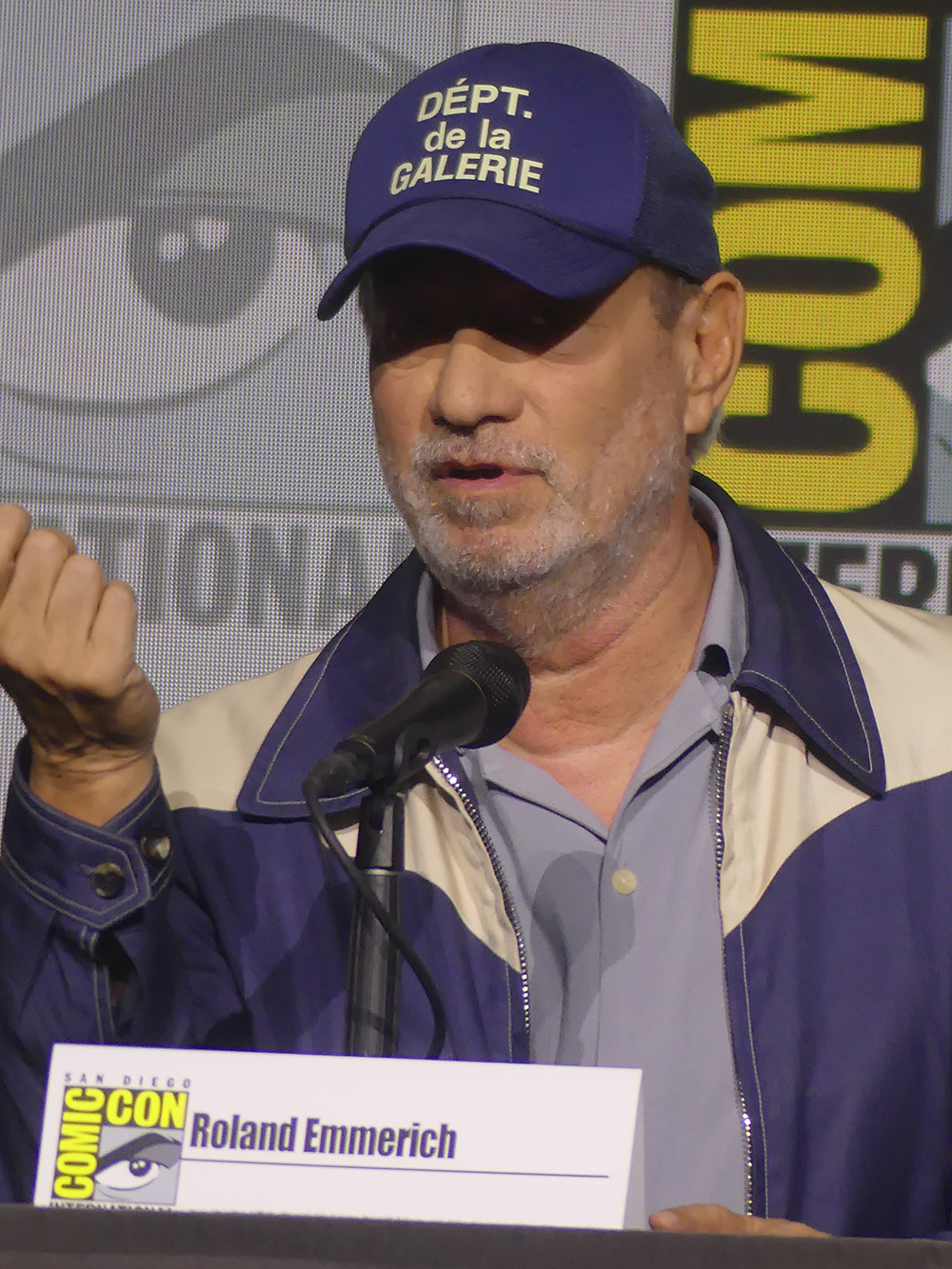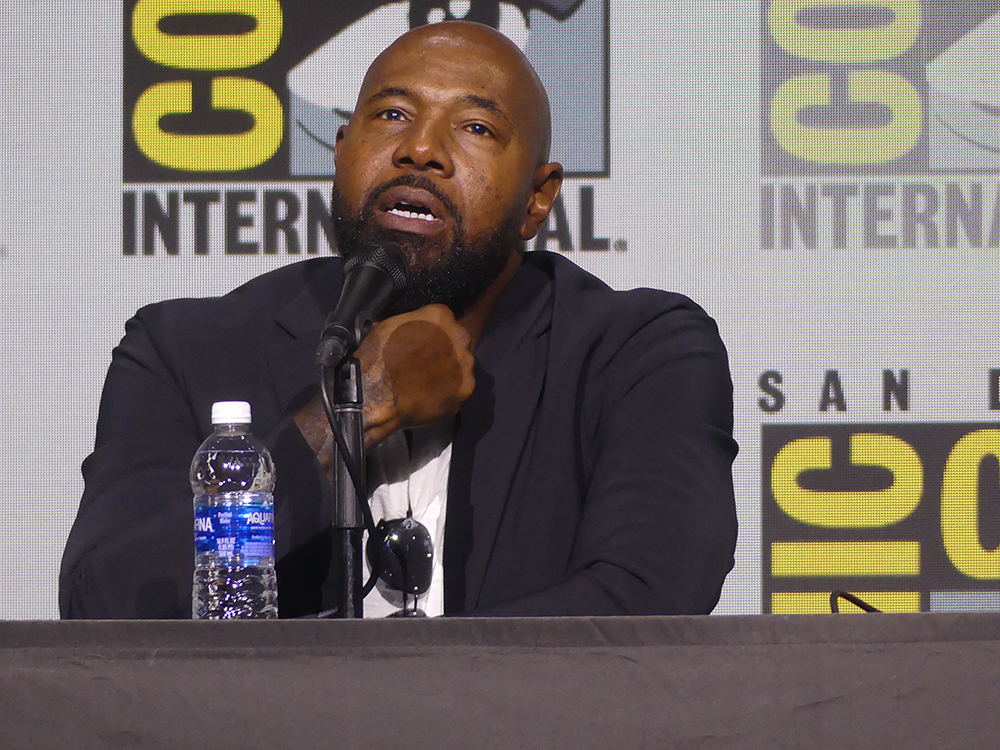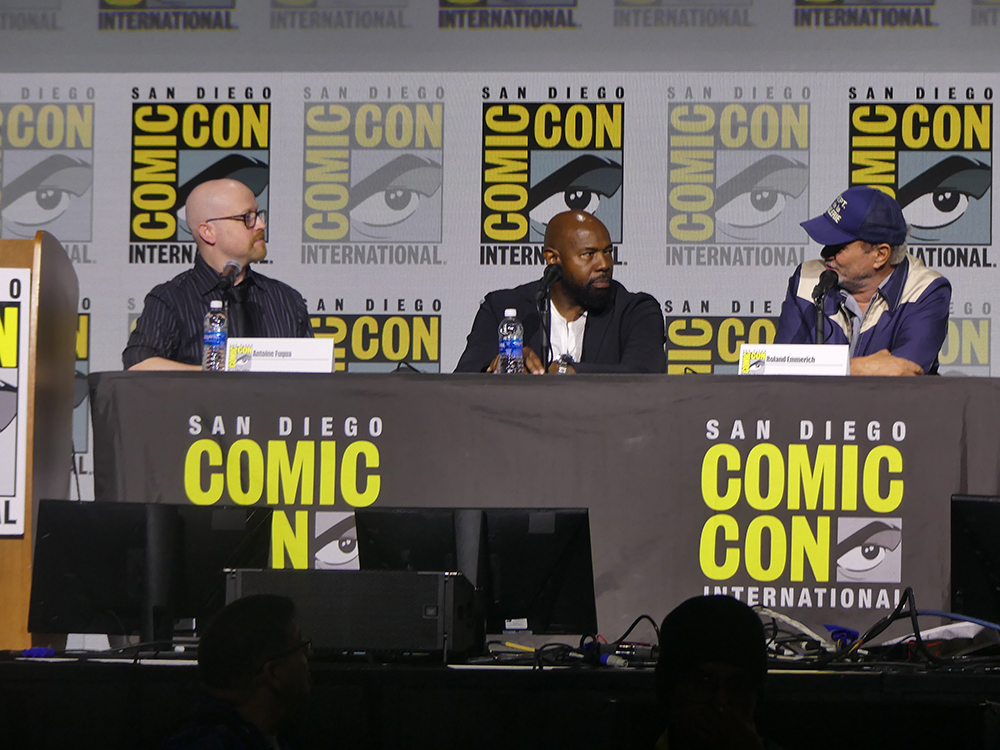Convention - SDCC 2024 : Directors on Directing Panel with Roland Emmerichand Antoine Fuqua
By Mulder, San Diego, Convention Center, Hall H, 25 july 2024

At SDCC 2024, the Directors on Directing panel became a marquee event, captivating audiences with a compelling discussion featuring renowned filmmakers Roland Emmerichand Antoine Fuqua. Moderated by Steven Weintraub, the editor-in-chief of Collider, the panel offered a rare and intimate glimpse into the creative processes, challenges, and philosophies of two of Hollywood's most influential directors. Roland Emmerichand Antoine Fuqua, known for their distinctive styles and contributions to blockbuster cinema, shared their insights on the art of directing in a conversation that ranged from the technical aspects of filmmaking to the deeper, more personal motivations behind their work.
Steven Weintraub, known for his deep knowledge of the film industry and his ability to draw out thoughtful responses from filmmakers, set the tone for the panel by asking each director about their journey into the world of filmmaking. Roland Emmerich, the mastermind behind epic disaster films like Independence Day and 2012, reflected on his early influences, which included classic science fiction and disaster films of the 1970s. Roland Emmerichexplained how these genres provided him with a blueprint for creating large-scale, visually stunning movies that also carry a message about humanity's resilience and the importance of global unity. He emphasized that for him, directing is about more than just spectacle—it's about using the canvas of film to explore what it means to be human in the face of overwhelming odds.

Antoine Fuqua, known for his intense, character-driven films like Training Day and The Equalizer series, shared his own path to becoming a director, which was deeply influenced by his love of classic Westerns and gritty urban dramas. Antoine Fuqua spoke about his early work in music videos, where he honed his skills in storytelling through visual composition and pacing. He discussed how this background in music videos taught him the importance of rhythm and timing in film, elements that are crucial in his tightly paced action scenes. Antoine Fuqua also highlighted his commitment to telling stories that are grounded in reality, focusing on characters who face moral dilemmas and challenging circumstances, often in environments that mirror the real world.
As the discussion progressed, Steven Weintraub steered the conversation toward the specific challenges each director faces when working on big-budget productions. Emmerich, whose films often involve extensive use of visual effects, shared his experiences with coordinating massive teams of VFX artists, set designers, and stunt coordinators to bring his apocalyptic visions to life. He described the delicate balance between relying on CGI to create spectacular moments and ensuring that these moments feel grounded in reality. Roland Emmerichalso touched on the importance of practical effects, noting that even in an age of advanced digital technology, there is still a place for physical stunts and sets to create a sense of authenticity.

Antoine Fuqua, on the other hand, provided insights into his approach to directing action sequences, which are a hallmark of his films. He spoke about the rigorous preparation involved in choreographing fights, shootouts, and other intense scenes, emphasizing the importance of realism and precision. Antoine Fuqua described his collaborative process with stunt coordinators and actors, explaining how he works to ensure that every action scene serves the story and reveals something about the characters involved. He also discussed the psychological aspects of directing action, where understanding the mindset of the characters can inform the way a scene is shot and edited.
Steven Weintraub, known for his probing questions, asked both directors about their thoughts on the evolving landscape of cinema, particularly in light of the rise of streaming platforms and the changing nature of film distribution. Roland Emmerichexpressed mixed feelings, noting that while streaming services offer greater accessibility and a broader audience for films, he still values the traditional theatrical experience. He spoke passionately about the communal aspect of watching a movie in a theater, where the collective reactions of an audience can enhance the emotional impact of a film. Roland Emmerichalso mentioned that the shift toward streaming has influenced the way films are made, with an increasing emphasis on content that can be consumed quickly and on a variety of devices.

Antoine Fuqua echoed some of Emmerich's sentiments but also highlighted the opportunities that streaming platforms present, particularly for filmmakers who want to tell more diverse and unconventional stories. He pointed out that streaming services have opened the door for projects that might not have been greenlit by traditional studios, allowing for greater creative freedom. Antoine Fuqua also discussed how the flexibility of streaming allows directors to experiment with format and structure, potentially leading to new and innovative forms of storytelling. However, he cautioned that the challenge remains to maintain the quality and depth of storytelling, regardless of the platform.
The panel also explored the role of the director as a leader and visionary on set. Roland Emmerichtalked about the importance of having a clear vision and being able to communicate it effectively to the entire crew. He described his directing style as one that is both collaborative and authoritative, where he encourages input from his team but ultimately ensures that all decisions align with his vision for the film. Antoine Fuqua, known for his intense, hands-on approach, emphasized the need for a director to be fully immersed in every aspect of production. He shared stories of working closely with his actors, sometimes even stepping into the physical training and preparation required for their roles, to ensure that they fully embody their characters.

As the panel drew to a close, Steven Weintraub opened the floor to questions from the audience, allowing fans and aspiring filmmakers to engage directly with Roland Emmerichand Antoine Fuqua. The directors offered practical advice, urging young filmmakers to be persistent and to embrace their unique voices. Roland Emmerichencouraged aspiring directors to study the great films of the past while also being open to new ideas and technologies. Antoine Fuqua advised them to focus on the story and the characters above all else, reminding them that even in the biggest blockbusters, it's the human element that resonates most with audiences.
SDCC 2024's Directors on Directing panel, moderated by Steven Weintraub, was a profound exploration of the art of filmmaking, offering invaluable lessons from two of the industry's most respected directors. Roland Emmerichand Antoine Fuqua, each with their distinct styles and approaches, provided a masterclass in how to craft compelling, high-stakes cinema that both entertains and moves audiences. The panel not only highlighted the complexities of directing large-scale films but also underscored the enduring passion and dedication required to succeed in the ever-evolving world of filmmaking.

You can discover our photos in our Flickr page
Photos and video : Boris Colletier / Mulderville

